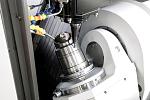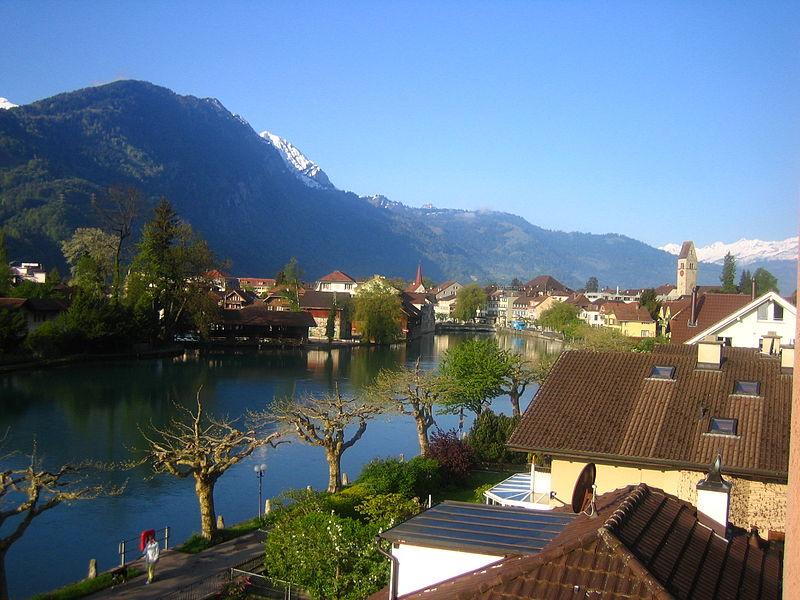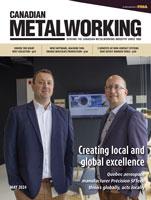- FMA
- The Fabricator
- FABTECH
- Canadian Metalworking
View from the floor: Where things work
“Swiss job” refers to intricate, precision work derived from a traditional watchmaking culture but the nation applies the core principles broadly.
- By Jim Anderton
- July 28, 2014
Over the years, I’ve written this column from the shores of pristine lakes, from creaky Jumbo Jets 39,000 feet over Siberia and once from the hangar deck of an aircraft carrier. Right now, I’m in a pretty resort town in Switzerland, Interlaken. Normally, the venue doesn’t matter and I don’t care enough to mention it, but there’s something going on here that’s important.
Switzerland is famously ordered and organized and while the stereotype is rooted in a great deal of truth, the hidden subtext that the Swiss are a staid and uninteresting people is far wide of the mark. If ‘functional’ is the same as ‘stolid’, then give me a little of their kind of boredom back home. Things work here. Switzerland integrates natural spaces and green principles with some of the highest technology precision engineering on the planet.
The Canadian toolmaker or machinist’s descriptor “Swiss job” refers to intricate, precision work derived from a traditional watchmaking culture but the nation applies the core principles broadly. Road construction crews for example, use equipment that is significantly smaller than the Canadian norm for many tasks, yet work at a noticeably faster pace. Everything from ATMs to railway crossing safety barriers are better, smarter and faster than our norm. It’s an outward looking culture that’s confident, sophisticated and worldly.
Here in , Chinese tourists photograph goats grazing in a small pasture 20 metres from one of the numerous boutiques selling cell phones and Rolex watches. Much of the country has a gingerbread feel with funicular railways, traditional architecture and village charm, all with the Alps as a backdrop.
What the postcards don’t show however, are hundreds of factories small and large producing class-leading machine tools, advanced materials, production processes and components for applications ranging from orbital satellites to dairy farming. Everything works in Switzerland and works well, but not for the reasons that we believe.
In Canada we often cite our dysfunctional political system for hobbling economic progress, but the Swiss have an antique form of regionalism and direct democracy which can be even more fractious and paralyzing than a Rob Ford council meeting. Except that here the infrastructure gets built.
How? The Swiss communicate in French, Italian and German but maintain a strong national identity and unique culture that has pragmatically evaded centuries of European conflict. Like us, they are a peace loving country. Also like Canada, they are a small country relative to their neighbours but are proud, tough and resourceful.
From where I’m writing this however, the Wi-Fi signal is strong, the vending machines are never out of Diet Coke and the teenager with the ring in his nose gives you simple, clear and concise directions to your destination in the major language of your choice. A nation is the sum of the stories that it tells about itself, a set of memes derived from oral and written traditions that are simultaneously distorted and amplified by foreign ideas and ideals that once crossed the Alps on leather boots and now flood in through the Web, just like everywhere else.
Things work here because the Swiss like it this way. They like how it makes them feel and the like the way it makes the world feel about them and their culture. Homes that have stood for 200 years carry solar panels discreetly on their roofs. World-class pharmaceutical research coexists with traditional herbal medicine. Tradition endures, but progress marches on.
I used to wonder how Einstein could formulate General Relativity in a Swiss patent office, but from where I sit it makes perfect sense. It’s the culture; their culture. Switzerland isn’t better than Canada, it’s different.
I wouldn’t want Canada to duplicate Switzerland, but we could benefit greatly from a little Swiss enthusiasm for technical and operational excellence combined with an unapologetic worldview and confidence that our culture will survive for centuries, long after politics and economics cease to be relevant. Our’s might, but I’m pretty sure that their’s will.
subscribe now


Keep up to date with the latest news, events, and technology for all things metal from our pair of monthly magazines written specifically for Canadian manufacturers!
Start Your Free SubscriptionAbout the Author
- Trending Articles
Sustainability Analyzer Tool helps users measure and reduce carbon footprint

Mitutoyo updates its end-user portal

Enhance surface finish with high-speed machining

Equispheres secures $20 million investment round

Solid carbide drills produce precision holes in short chipping materials

- Industry Events
Automate 2024
- May 6 - 9, 2024
- Chicago, IL
ANCA Open House
- May 7 - 8, 2024
- Wixom, MI
17th annual Joint Open House
- May 8 - 9, 2024
- Oakville and Mississauga, ON Canada
MME Saskatoon
- May 28, 2024
- Saskatoon, SK Canada
CME's Health & Safety Symposium for Manufacturers
- May 29, 2024
- Mississauga, ON Canada
















